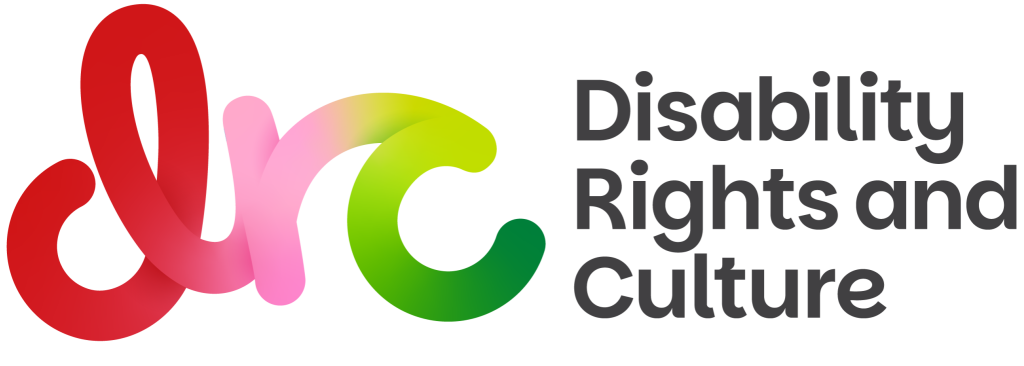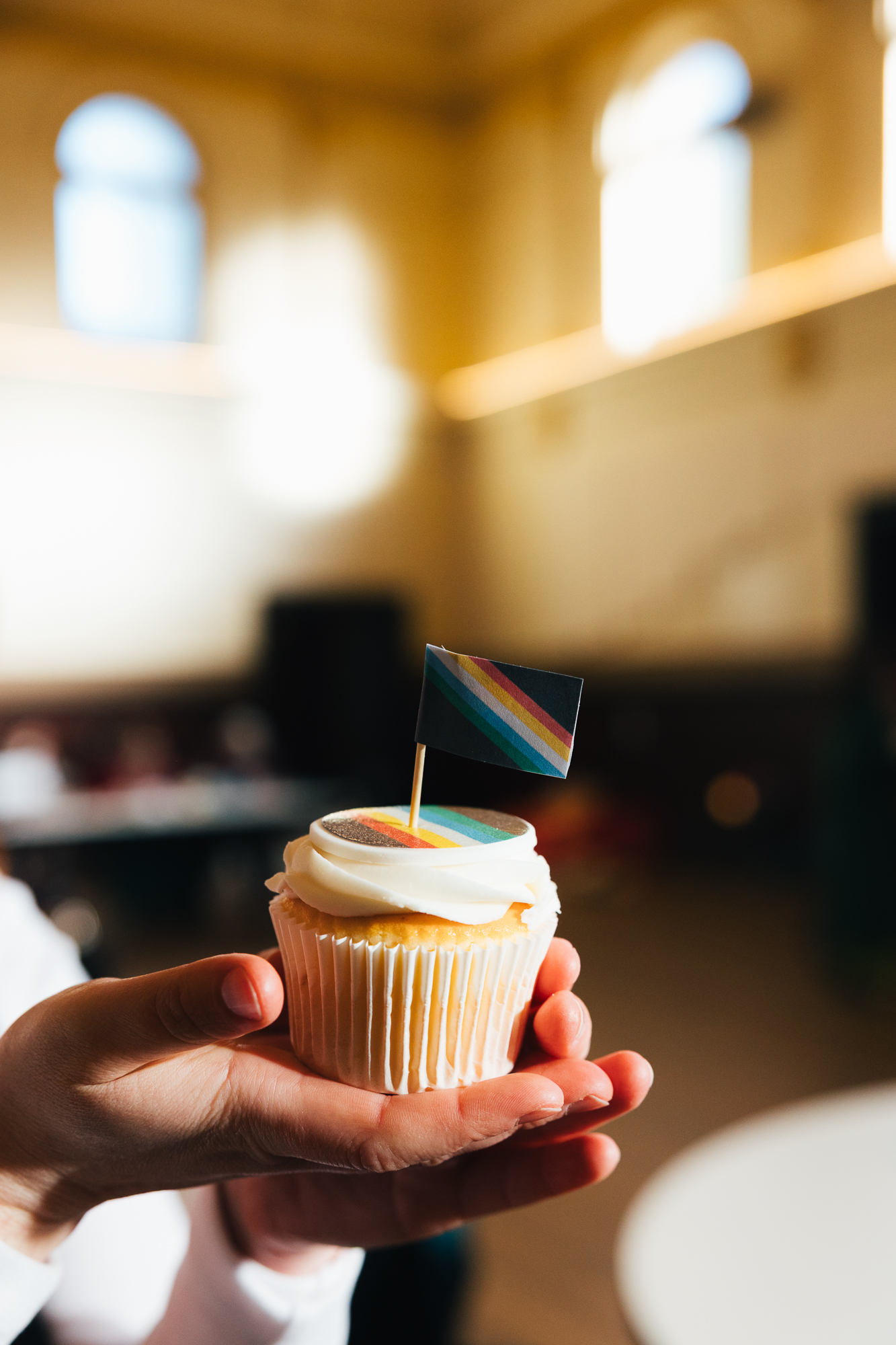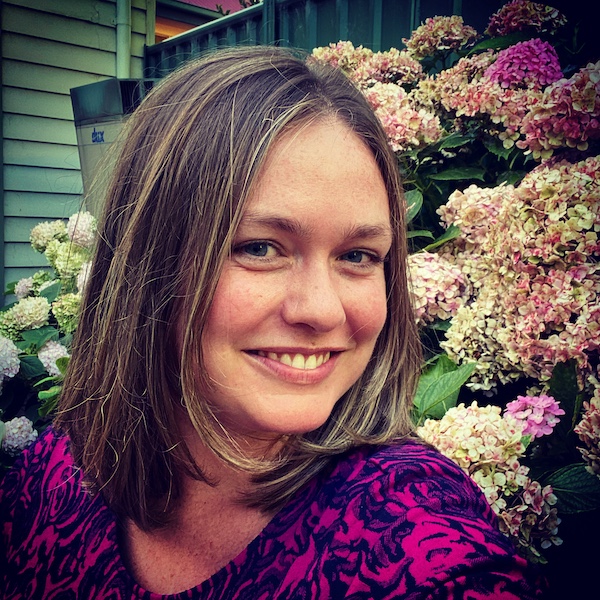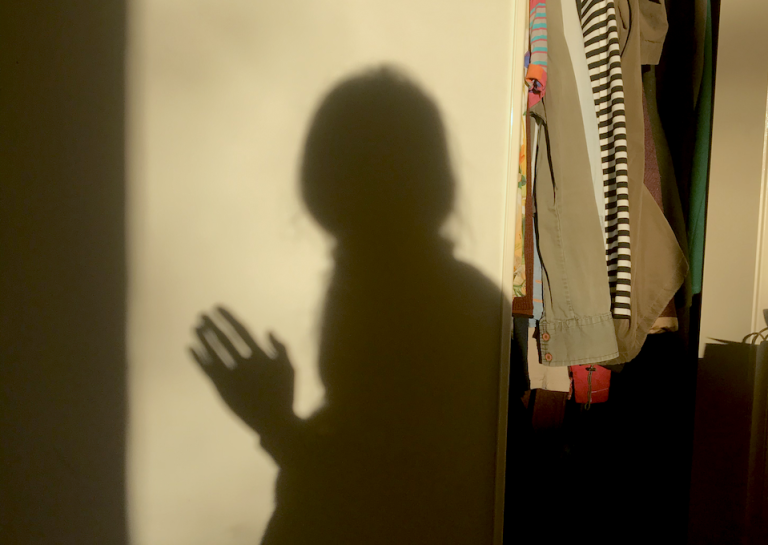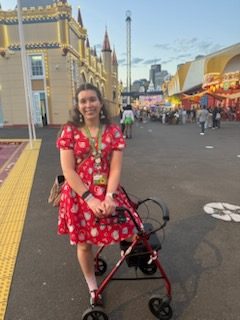It’s always joyful when the disability community comes together to celebrate.
And on Friday 19 July 2025, that’s exactly what we did.
Over 70 people attended our 2025 Disability Pride Celebration at Kensington Town Hall, including a small group of people who attended online. Guests were treated to the comedy stylings of MC Robyn Reynolds, who has recently joined the DRC’s communications team, before a warm and enthusiastic Welcome to Country by Yorta Yorta Elder Aunty Jane.
The afternoon was hosted by DRC and the Belong network and held in honor of Belong founding member Kirsty Timberlake who died in May. We took a few minutes to hold candles, honour and remember her together. We also remembered dear friend Phin Meere and other beloved community members that we have lost this year.
With glittering sparkles and fairy lights, attendees enjoyed good food, good conversation, and good company. There were games, art displays, craft, a sensory corner decked out with the help of Kaiko Fidgets and Sensory Tools Australia, and disability pride badge making with artist and advocate Larissa McFarlane, who also spoke about power disability pride at the event.
As part of our open mic segment nine speakers shared their stories, including campaigner and ME advocate Andrew Bretherton, Ness Hill from KindNess and visual artist Louise Marson.
“It’s so important to come together to celebrate disability pride and culture,” DRC Executive Officer Ally Scott said.
“It’s a way of acknowledging the ableism, the discrimination and the barriers, whilst connecting with the unique value of each and every one of us.”
“Our community is radically inclusive, so we bring people together from wildly different disability experiences, and across culture, age and gender identity. We are truly diverse, but our shared disability culture is tangible.
It’s an incredibly joyful crowd to be part of.”
For many, it was their first time meeting the DRC and Belong community—and attendees said they felt very positive about the sense of connection at the event. For others, it was a return to an annual tradition, and a chance to meet up with friends old and new.
We’d like to thank everybody who came, and everybody who helped make this happen. We hope you had a wonderful time—and we’ll see you next year for an even bigger and better disability pride celebration.


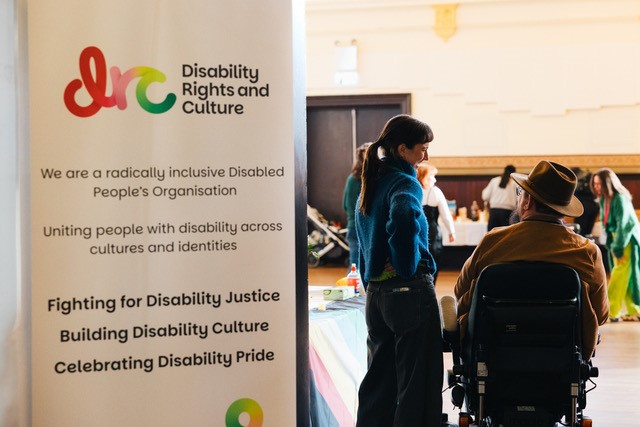
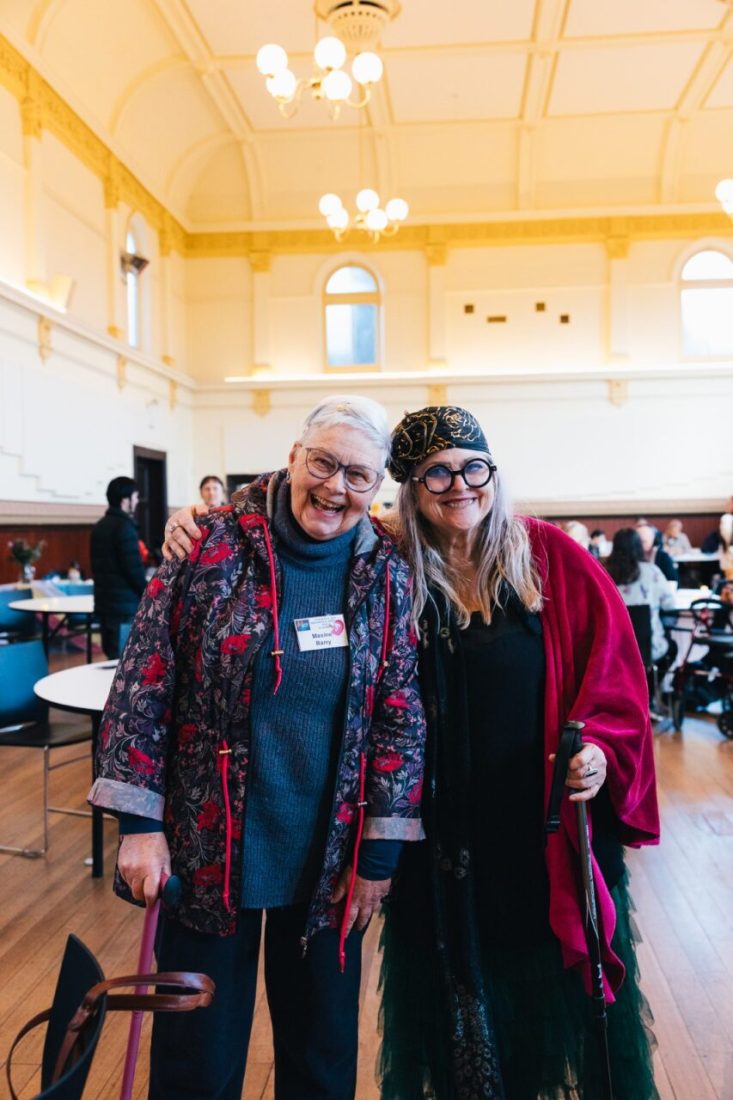
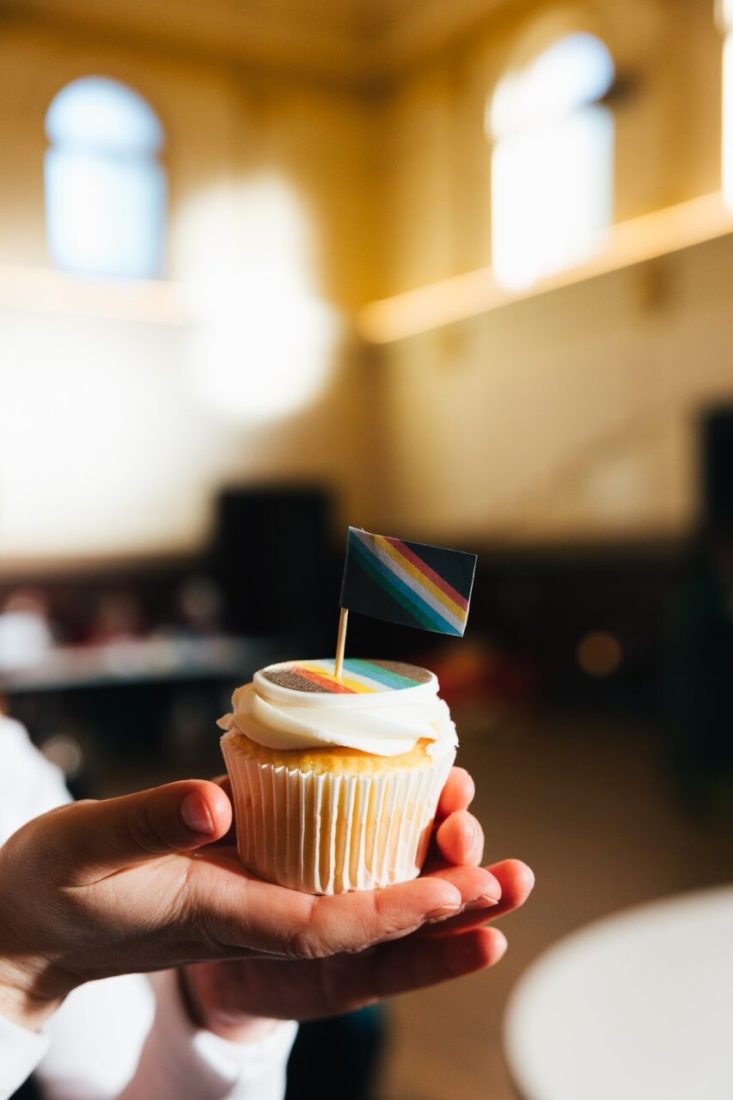
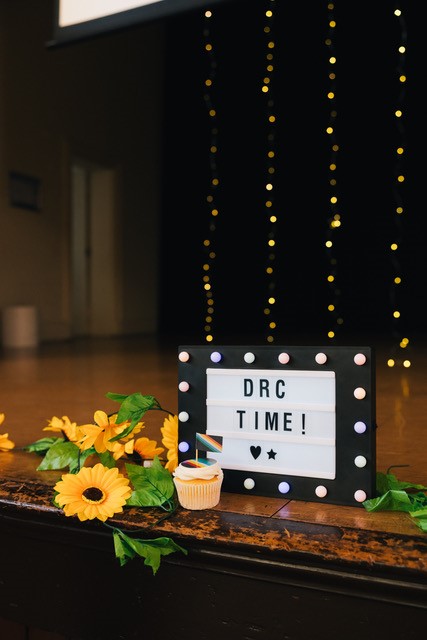
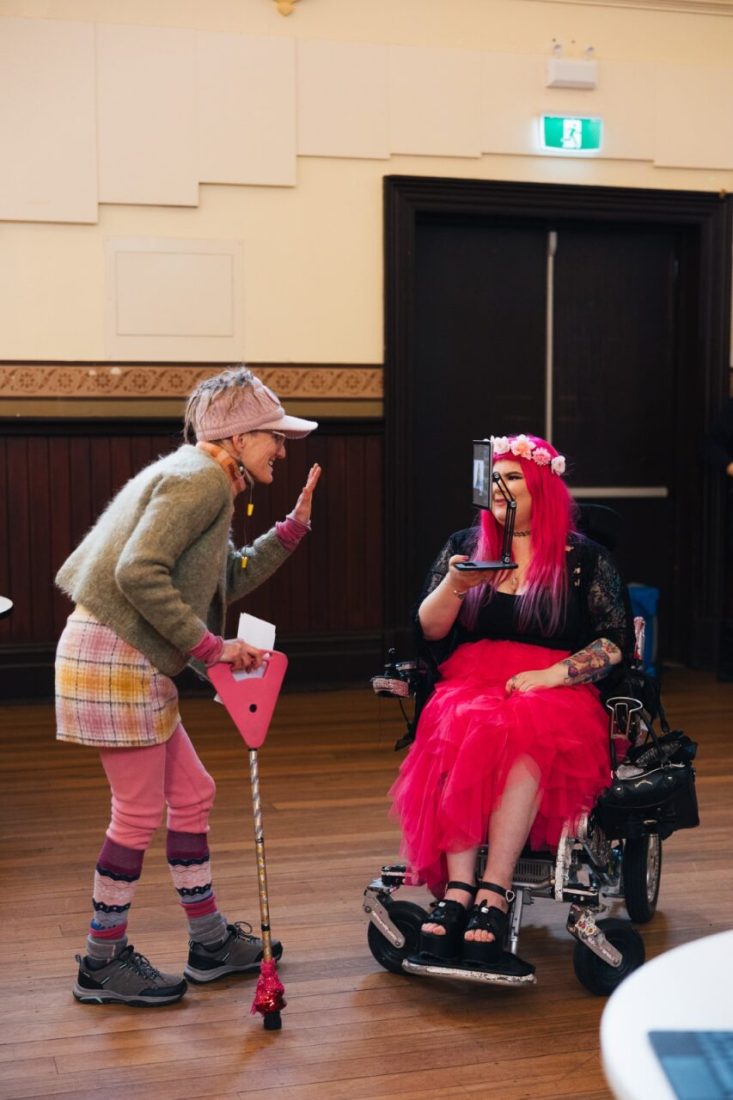
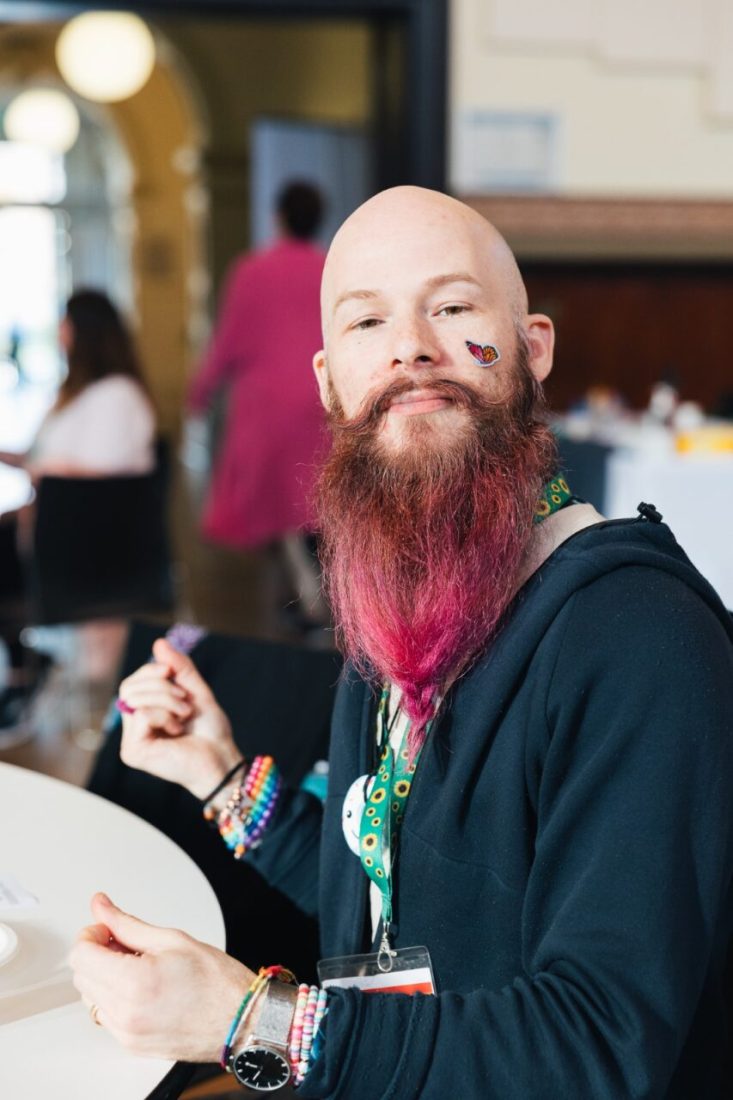
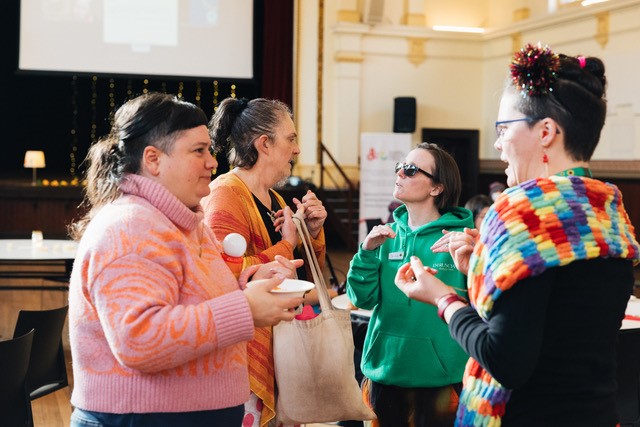
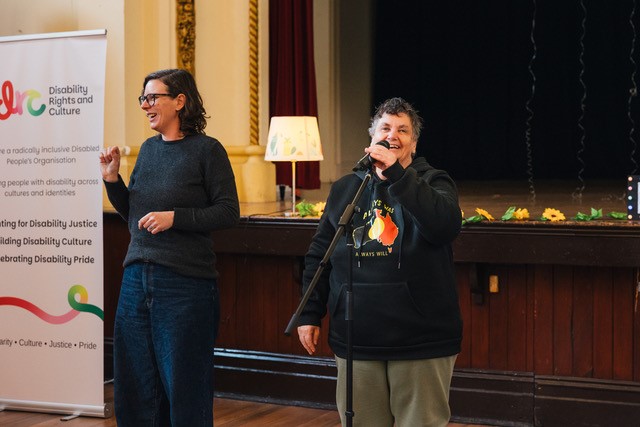

Zoe Simmons is an award-winning journalist, author, speaker, disability advocate and human rights ambassador. She uses the raw power of storytelling and lived experience to smash stigma, create change, and help others to not feel so alone. Zoe is also a new addition to the DRC’s team as the communication and engagement coordinator.
Have a blog idea and want to share it? Reach out to Zoe@DRC.org.au
We’d love to here from you!
While you’re here, why not check out our free disability community, Belong?
